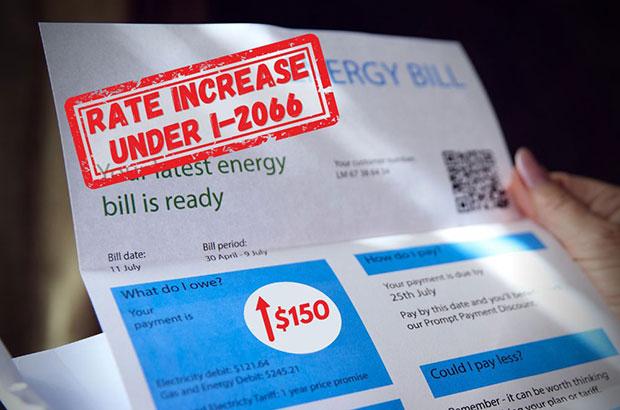New research shows that if Washington voters pass Initiative 2066, it could raise consumer utility gas bills in the state by $150 or more per year by 2035, and double them by 2050. Experts have examined these findings and note the “sticker shock” coming for voters if I-2066 passes.
Among the many impacts of I-2066 would be a repeal of important planning tools that Puget Sound Energy, Washington’s largest utility, says are necessary to prevent higher energy costs in the coming years. Climate Solutions’ new analysis of research conducted earlier this year by Synapse Energy Economics shows that I-2066’s attempted rollback of these tools and consumer protections would mean escalating costs for Washington residents with gas appliances in their homes.
Gas use is already in decline in Washington state. Puget Sound Energy reports that gas use is down 7% for residential and 3% for commercial customers in 2023, as more and more people choose to switch to cleaner, more efficient electric appliances. This trend means that fewer and fewer gas customers will be left to pay higher and higher monthly energy bills to maintain an expanding gas system. The increased costs will be a particular burden for people living on low or fixed incomes. I-2066 would worsen these problems by repealing utility planning tools and jeopardizing programs to help households, especially those on low incomes, upgrade to energy-efficient electric appliances.
I-2066’s impact on energy bills is among the reasons that the No on 2066 campaign is endorsed by leading voices working in affordable housing and anti-poverty programs, including Statewide Poverty Action Network, the Anti-Hunger and Nutrition Coalition and the Housing Development Consortium.
“The costs of rent, groceries, healthcare, insurance, and many other goods and services are all rising, but wages for low- and middle-income workers are not keeping up, said Traci Underwood, Policy Director of the Economic Opportunity Institute. “Households across Washington are already strapped trying to make ends meet—raising energy costs by eliminating common sense utility planning tools is a step in the wrong direction. Washington families should reject I-2066.”
Molly Gallagher, Communications Coordinator with the Statewide Poverty Action Network, agrees: “energy bills are a huge financial strain for working families in Washington. I-2066 would guarantee higher energy costs in the coming years by rolling back tools that help utilities plan for the future. It’s vital that voters look at the fine print of this poorly written initiative, which would have unintended consequences for people across the state.”
The best way to keep energy costs under control, research shows, is for utilities to create and follow a managed transition plan, exactly what I-2066 would prevent.
“I-2066 will eliminate opportunities for a managed transition for Washingtonians who rely on natural gas,” says William Gehrke, Senior Technical Analyst with the NW Energy Coalition. “Allowing natural gas utilities to manage and plan for transition costs effectively will mitigate future risks and costs for natural gas customers.”
“I-2066 would increase energy bills by taking a wrecking ball to energy efficiency programs and commonsense utility planning tools,” adds Leah Missik, Washington Deputy Policy Director at Climate Solutions. “Higher monthly bills are the last thing that anyone needs right now.”
Source link
Jonathan Lawson www.climatesolutions.org

